Are you looking to kickstart a new project and need help formulating a winning project proposal? Crafting the perfect letter to request a proposal can make all the difference in securing the right collaboration. In this article, we'll break down key elements to include in your request, ensuring your message stands out and resonates with potential partners. So, let's dive in and discover how to articulate your vision effectively!
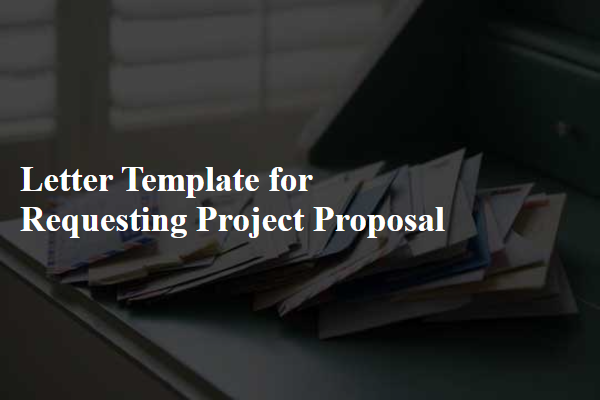
Clear project description
The project proposal should encompass a detailed description of the initiative aimed at improving renewable energy utilization in urban settings, particularly focused on solar power technology. The proposal must outline the objectives, including a projected increase in energy efficiency by 30% within two years, estimating a potential reduction in carbon emissions of approximately 200,000 tons annually. Specific locations, such as San Francisco or New York City, should be identified for pilot projects, emphasizing the target demographic of urban residential areas. Additionally, the proposal must include a timeline with key milestones, such as installation phases and performance evaluation periods, to ensure accountability and transparency in execution. Budget breakdowns should detail projected costs for equipment, labor, and maintenance, ensuring potential investors understand the financial landscape of the project.
Specific objectives and goals
A project proposal outlines specific objectives and goals that serve as a roadmap for successful execution. Defining measurable objectives, such as increasing productivity by 20% within six months or reducing operational costs by $50,000 annually, provides clarity and direction. Goals should include key performance indicators (KPIs), such as customer satisfaction ratings reaching 90% or project completion percentages tracked quarterly. These details ensure that all stakeholders, including team members and project sponsors, understand the project's purpose, expected outcomes, and desired impact, facilitating more effective planning and execution. When submitting a project proposal, it is essential to clearly articulate these objectives and goals for better alignment and support.
Submission guidelines and deadlines
Organizations often require project proposals for funding or collaboration opportunities, highlighting the importance of submission guidelines and deadlines. Clear submission guidelines outline critical aspects such as formatting, required documentation, and evaluation criteria, ensuring consistency among applicants. Deadlines, typically specified in terms of date and time, are crucial for effective planning and resource allocation. For instance, a proposal submitted by a government agency in Washington D.C. might have a strict deadline of 5 PM EST on March 15, 2024, requiring adherence to both local time considerations and procedural protocols. Compliance with these directives ensures that proposals are reviewed in a timely manner, facilitating a fair selection process while promoting accountability within the requesting organization.
Evaluation criteria and process
The evaluation criteria and process for project proposals often focus on multiple dimensions, ensuring thorough assessment by stakeholders. Criteria may include feasibility (assessing the project's practical execution within timelines and budgets), innovation (evaluating the uniqueness of ideas and solutions proposed), impact (measuring potential benefits to communities, economies, or environments), and experience (reviewing the team's qualifications and past performance on similar projects). The process typically follows a structured timeline, beginning with proposal submission deadlines, followed by initial review phases where a committee scores submissions based on established criteria. Subsequent steps often involve interviews or presentations from top candidates, leading to a final selection based on cumulative scores and committee discussions. Accurate scoring rubrics may enhance objectivity, while feedback mechanisms provide insights for unsuccessful candidates.
Contact information for inquiries
Project proposals play a critical role in organizational advancement and funding opportunities in various sectors. Organizations seeking collaborations typically require clear contact information to facilitate inquiries. Relevant details include full name, title, and organizational affiliation of the contact person, as well as a phone number, email address, and physical office location, such as a city or postal code. Timeframes for responses can also enhance communication efficiency, ensuring potential collaborators have clarity on follow-up expectations. Providing this information ensures timely and effective exchanges, fostering partnerships that can lead to successful project outcomes.

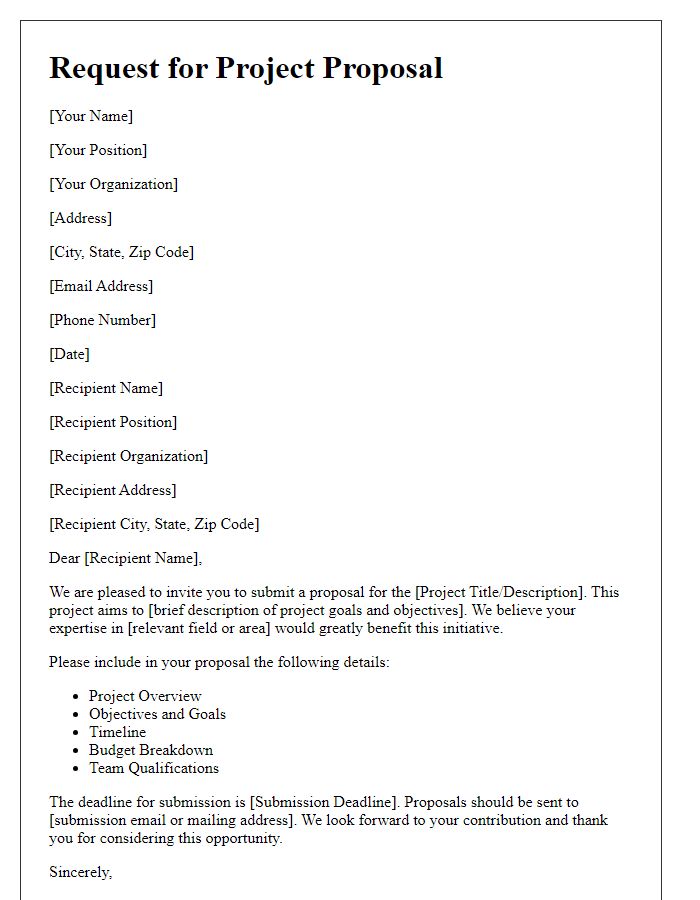
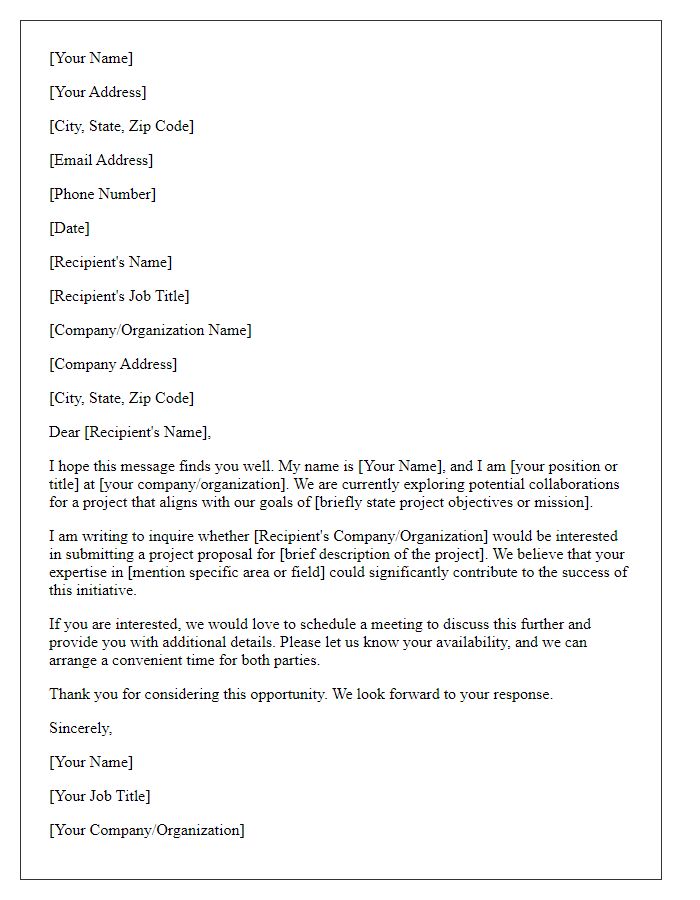

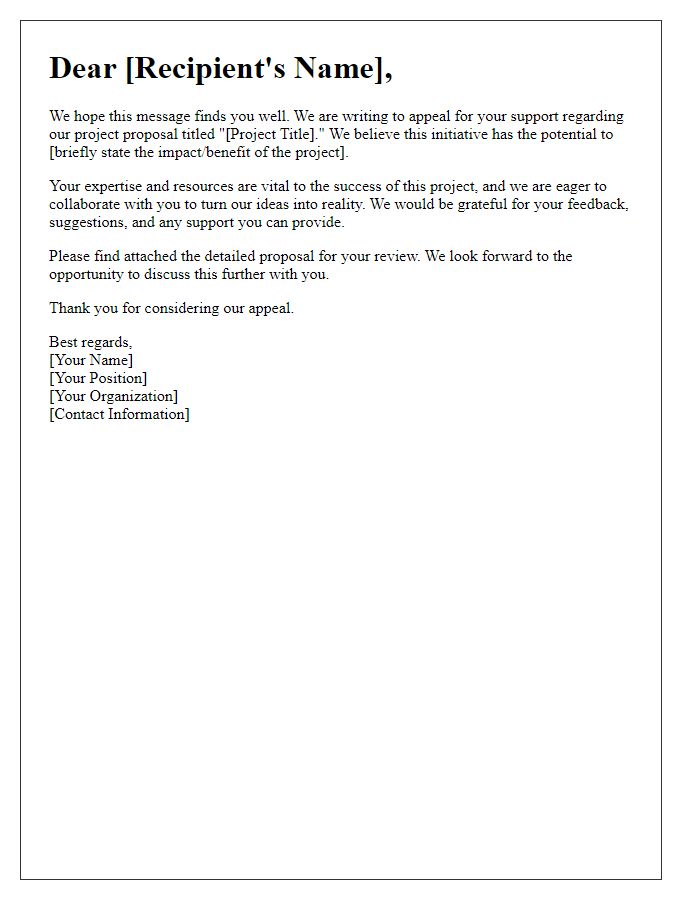
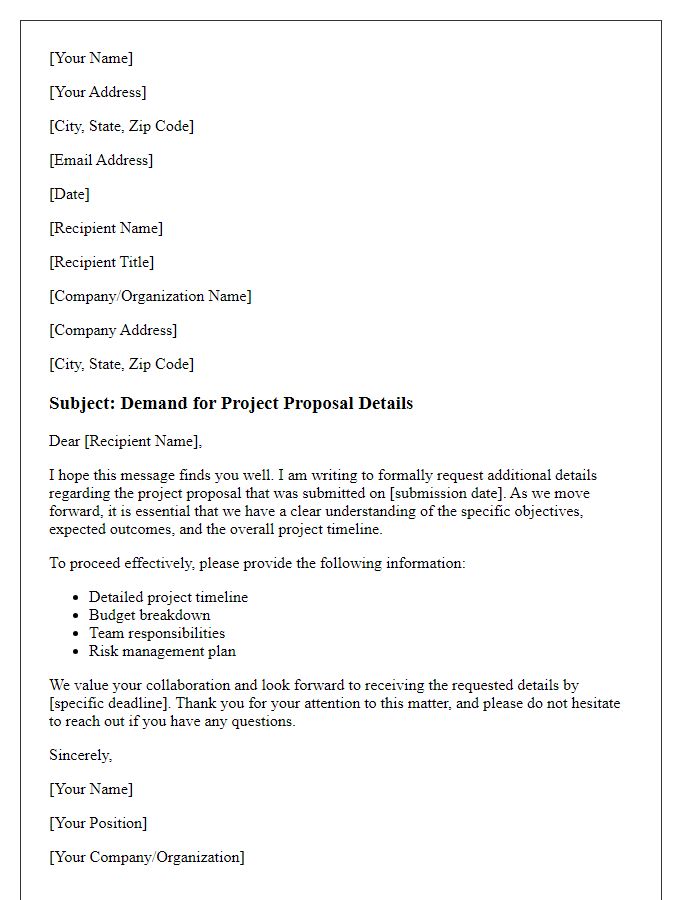
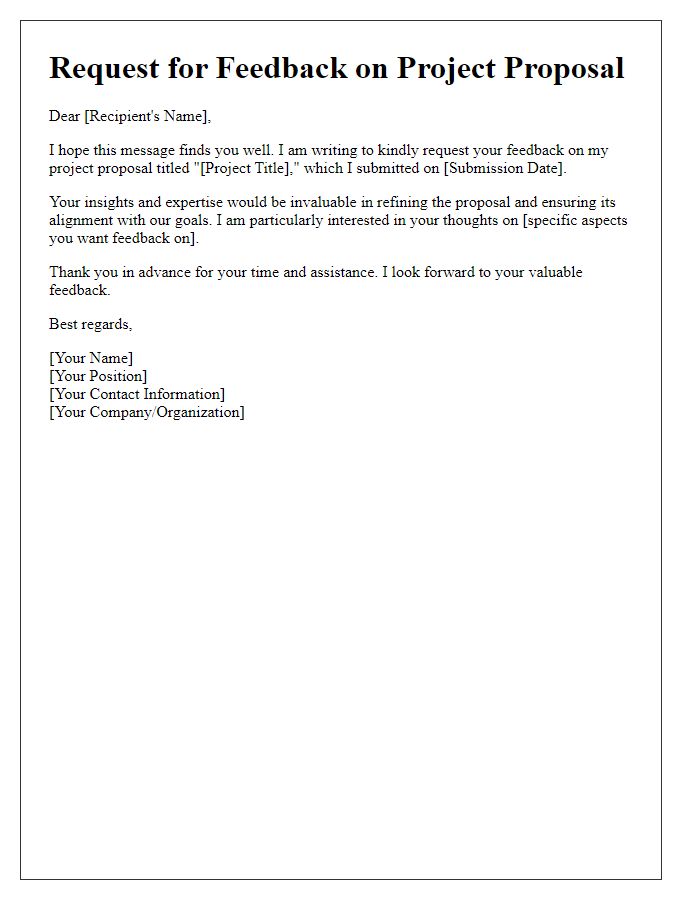
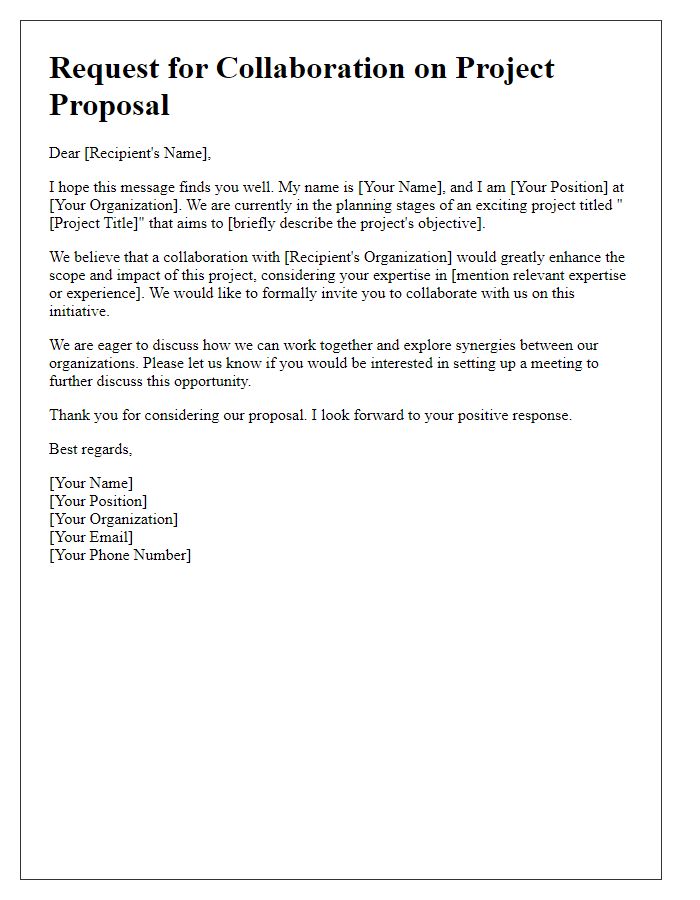
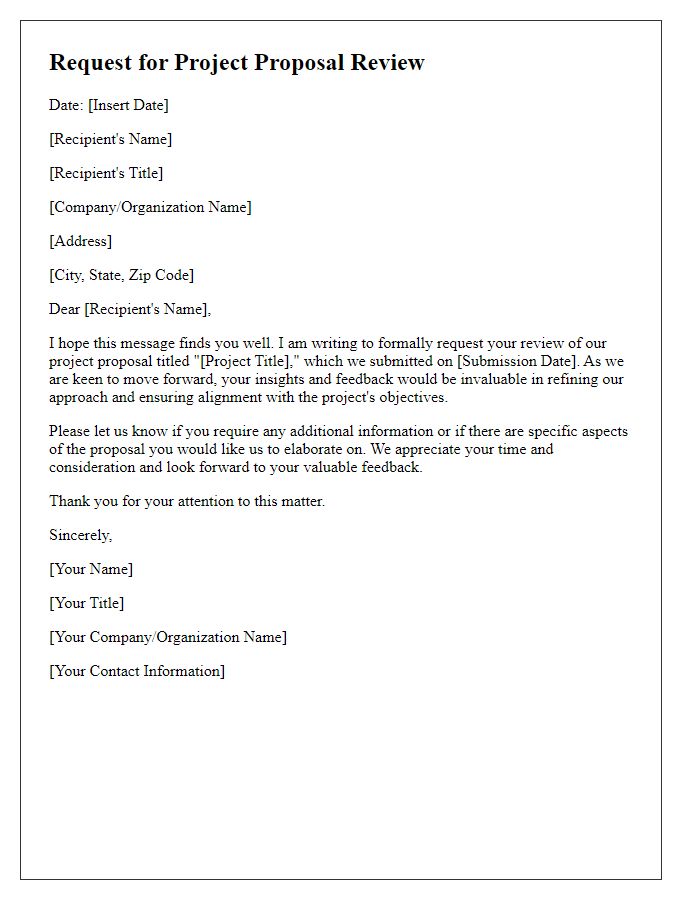
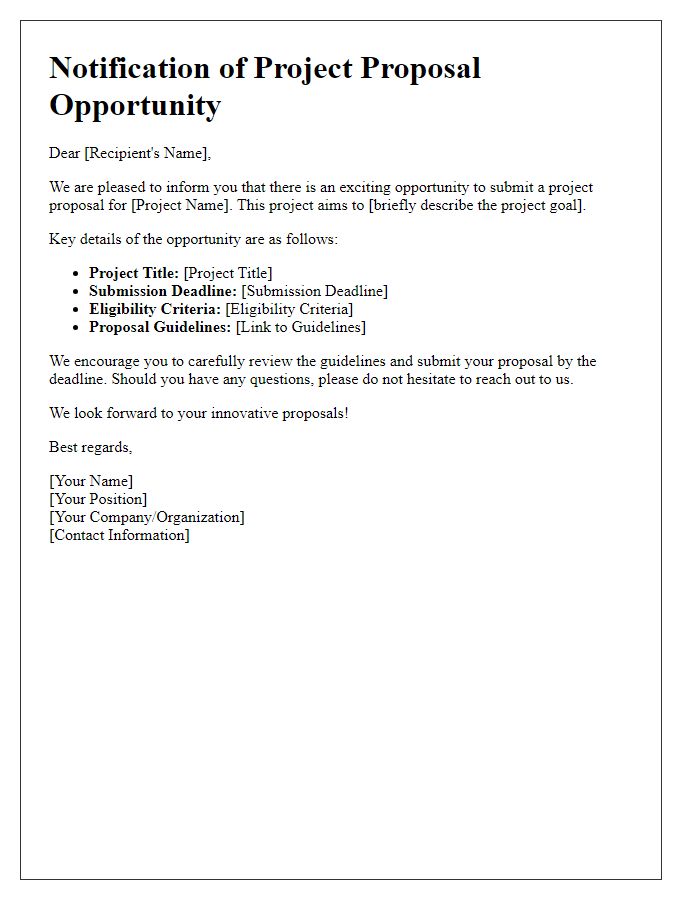
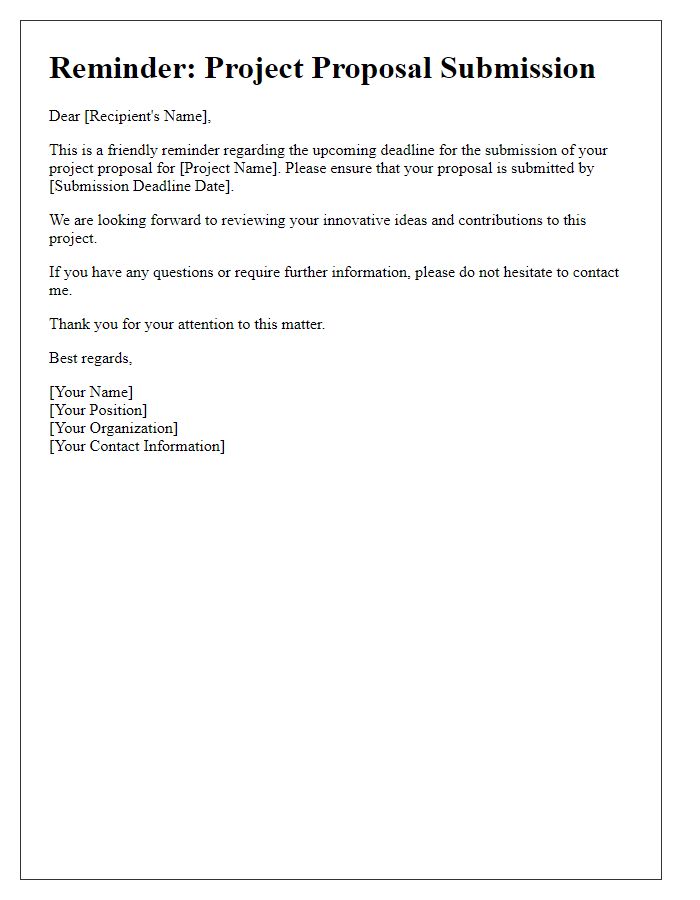

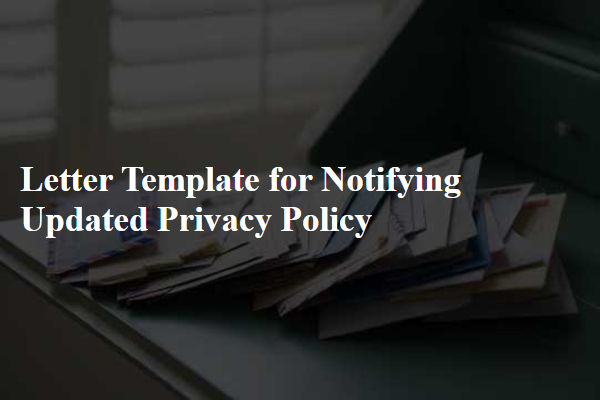
Comments